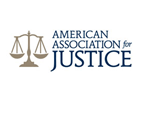The state of Nevada could do a much better job of keeping motorists safer on its roads, if it enacted stringent graduated driver licensing laws for novice drivers, and had laws requiring ignition interlock devices for all DUI offenders.
Those findings come from a report released by Advocates for Highway and Auto Safety, an organization that every year ranks all 50 states on their compliance with key auto and highway safety laws. Those highway and auto safety laws have to do with passenger restraints, child restraints, drunk driving laws, distracted driving laws, novice driver laws, and a number of other laws that are related to highway safety. According to the report, in 2013, there were 262 traffic accident fatalities in Nevada, and these contributed to an annual economic cost of approximately $2.27 billion to the state.
Nevada received a Yellow rating which indicated that the state had managed to comply with some of the key highway safety laws that were outlined by the report, but there are gaps that are dangerous for motorist safety. Specifically, the report highlighted Nevada's failure to mandate a minimum age of 16 for a person to receive a learners permit, failure to impose nighttime restrictions, passenger restrictions and cell phone restrictions for novice drivers, and its failure to enact ignition interlock laws for all drunk driving offenders. The report also called into question the failure to enforce primary enforcement seat belt laws for both front seat occupants as well as rear seat occupants in Nevada, as well as the failure to enact mandatory booster seat use for all children through age 7.
In fact, many of the states that were given Yellow or Green rankings were cited for their failure to enact stronger graduated driver’s licensing laws. Teen drivers continue to be highly at risk of accidents, and fatality rates involving these motorists, continue to remain consistently high.

 call:
call: 







